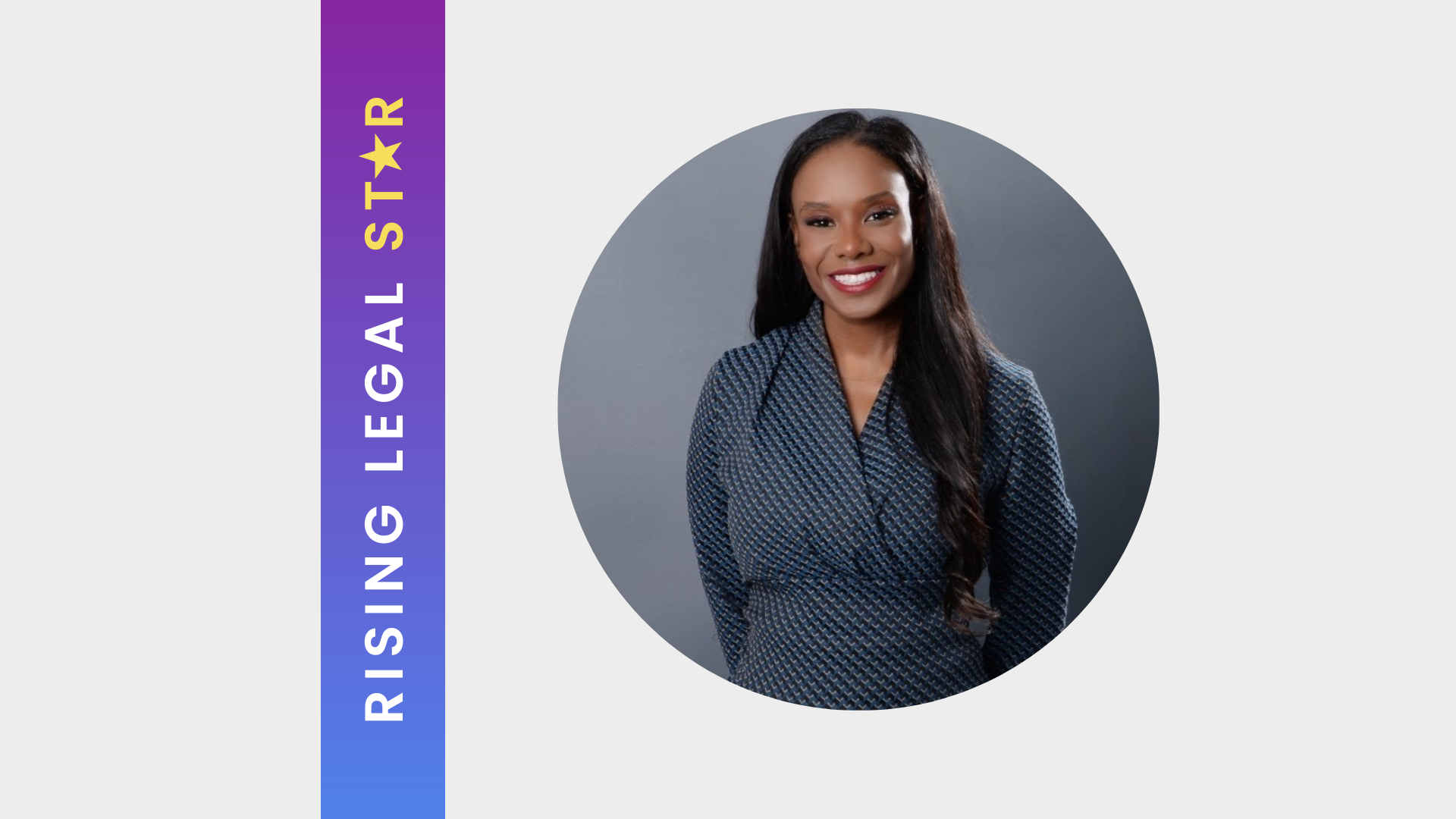Inspiring Business Women: Eugenia Giannoulopoulou
–
Could you tell us about your career progression to date?
My career in Compliance kicked off by accident. I came to London in 2003 to do a Master's degree in Law and was under the impression that I would be able to start a legal internship immediately after completing my degree. When I realised that applications must be submitted some 2 years in advance, I asked my tutor to help me find work experience opportunities. An opportunity came up at Raymond James Investments, helping as a Compliance Analyst, committing to two days a week while studying. I must have made an impression because as soon as I submitted my dissertation, I started a full-time job with them first as a Compliance Analyst and then as an MLRO.
In 2006 I joined Citigroup, which was a big learning curve for me – a large corporate with a highly hierarchical structure where I got the opportunity to develop policies and procedures and be involved in large scale projects with legal and regulatory impact. I also became a manager of people and was given tools to progress my career further. In 2014 I joined CMC Markets during their pre-IPO phase, helping build strong foundations around financial crime compliance with a strong focus on preventing market abuse. That would not have been possible without the help of their CEO Peter Cruddas who really understands regulatory risk and whose work ethic I really admire. More recently, I moved back into private asset management, again as a Money Laundering Reporting Officer and at the end of summer in 2020 I decided to launch my own consulting firm, Comply360, through which I can take on remediation projects, financial crime health checks and provide coverage as interim MLRO.
–
What was it that originally interested you in the Compliance space?
If I'm being honest, Compliance initially felt like a compromise because I had already completed my legal training and wanted to work as a lawyer. But I soon realised that while I can write a really good argument on paper, I would not be as comfortable arguing a case in court. I am not naturally confrontational! I chose to focus on financial crime, and I haven't looked back since. I still love researching and turning multi-page legal documents into bite-sized information for the business. With financial crime compliance, I feel that you can really make a difference, especially as a money laundering reporting officer for a larger organization. Our work becomes intelligence for law enforcement, we can stop crimes of all types from being committed or continued so it has a direct societal impact, which feels very motivational.
–
What are some of the biggest challenges that you've faced in your career and are any due to gender?
The biggest challenge that I have faced is trying to maintain a healthy work/life balance. I have been fortunate enough to have received outstanding support from past employers and managers who offered flexibility around hours and location, and I’ve been working from home one day a week for more than a decade now. In that sense, I don't feel that my gender has held me back in achieving my potential. But I'm under no illusion that achieving work-life balance is a problem for many women who choose to focus more on family or even give up successful careers because the opportunity to work flexibly is not presented to them. So now, if I join a new employer, I set clear boundaries about my expectations around work/life balance, not just for me, but for all women around me. The argument that flexible working hours or remote working does not really have a place in Financial Services, really has gone out of the window in the past year.
–
Do you believe that there's a glass ceiling for women in the workplace and has it changed?
I think if you are passionate about what you do and set your mind to it, you can achieve whatever you want, irrespective of gender. Corporate culture has changed significantly, but more work still needs to be done. We need to see more genuine efforts from companies of all sizes to increase female representation, especially at the higher levels of management. For example, the gender pay gap statistics are not something that should only be talked about during March when the data is released. We need clear strategies to ensure that compensation and promotions are fairly distributed between males and females within every company. I believe that titles should be earned, and compensation needs to be based on your performance and the value you add to a business, not your gender.
–
How do you feel the Financial Services industry compares to others regarding diversity and has that changed during your career?
I can’t immediately compare Financial Services to other sectors, but I still think there is more work to be done in attracting female talent from all backgrounds into FS, as women are still underrepresented, especially in more senior roles. The same is true for Black, Asian and other ethnic minorities. When you think about the diversity amongst clients, it doesn’t make sense that our workplaces don’t reflect the same. It is also something that the Financial Conduct Authority has specifically highlighted in recent months. When I hear the excuse that ‘there is not enough talent around among minorities for senior roles’, I have to wonder where people are looking, because there is plenty - I know from my own network. Leaders have to take responsibility for creating diverse talent pipelines and addressing bias in hiring. There should also be platforms that give a voice to underrepresented staff to ensure workplaces are more inclusive. It is time to move away from performative allyship.
–
What are some of the key moments that have either helped or hindered you in getting to where you are?
One of the defining moments in my career was joining CMC Markets. I did not have sufficient experience in their product offering, I really was moving out of my comfort zone but knew that I could learn fast and was highly motivated. It was a leap of faith from both parties. The move gave me tremendous exposure to a new area of financial crime (market abuse and insider trading) and access to key stakeholders, helping me develop new skills that I now use in more senior roles. So, I think that hiring managers need to look beyond product experience and consider skill sets and motivation more. Sometimes, that leap of faith or keeping an open mind, for both sides, can be much more rewarding and lead to higher satisfaction for the employee and better performance.
Personally, I like learning new things and I am a big proponent of continuing my professional development. I can’t think of any examples of being hindered in my career, partly because I have a positive mindset and can turn around difficult situations, through constructive feedback. That said, I do believe that if you do not enjoy a role, you can always move. It’s better to make that change if it’s not working out rather than stay, because both the business and your career will suffer.
–
What advice would you give to women looking to progress their careers within Compliance?
Firstly, try to focus on a niche. It's great to have a general understanding of the various areas but try to excel in one. As you start progressing into more senior roles, you can then start bringing along people who complement your own skillset, experience and knowledge to create a great team around you. Secondly, don’t be a people pleaser. I will quote my good friend and author Natalie Lue who says “Over-responsible people try to suppress themselves in order to make sure that they prioritize others to minimize or eliminate conflict or criticism”. I have probably learned the tough way, but being able to say no will help you avoid jeopardizing your own work and deadlines. Of course, I don’t mean that you should stop being helpful as there will always be times where other teams will need your support. But it should not become the norm and you should allow others to be more accountable for the work they produce and their contribution. This is a healthy approach to ensure others are not holding you back.
–
Do you have any role models you admire and what have you learned from them?
The first person that comes to mind is Mary-Ann Daly, the CEO of Cazenove and one of the most influential people in Private Asset Management. She has a remarkable background story and forged an incredible career in a very male-dominated industry. In my view, she is a trailblazer. She has remained authentic and never saw herself any different to her male colleagues. The other person would be Peter Cruddas, CEO of CMC Markets. I got to know Peter during my 4 years at CMC. His work ethic is second to none. He was always the first person in the office and knew almost everyone by name. For a man in his position, I found him always very approachable, as well as focused and extremely knowledgeable. I really admire his integrity and long-term success mindset.
Our latest insights







